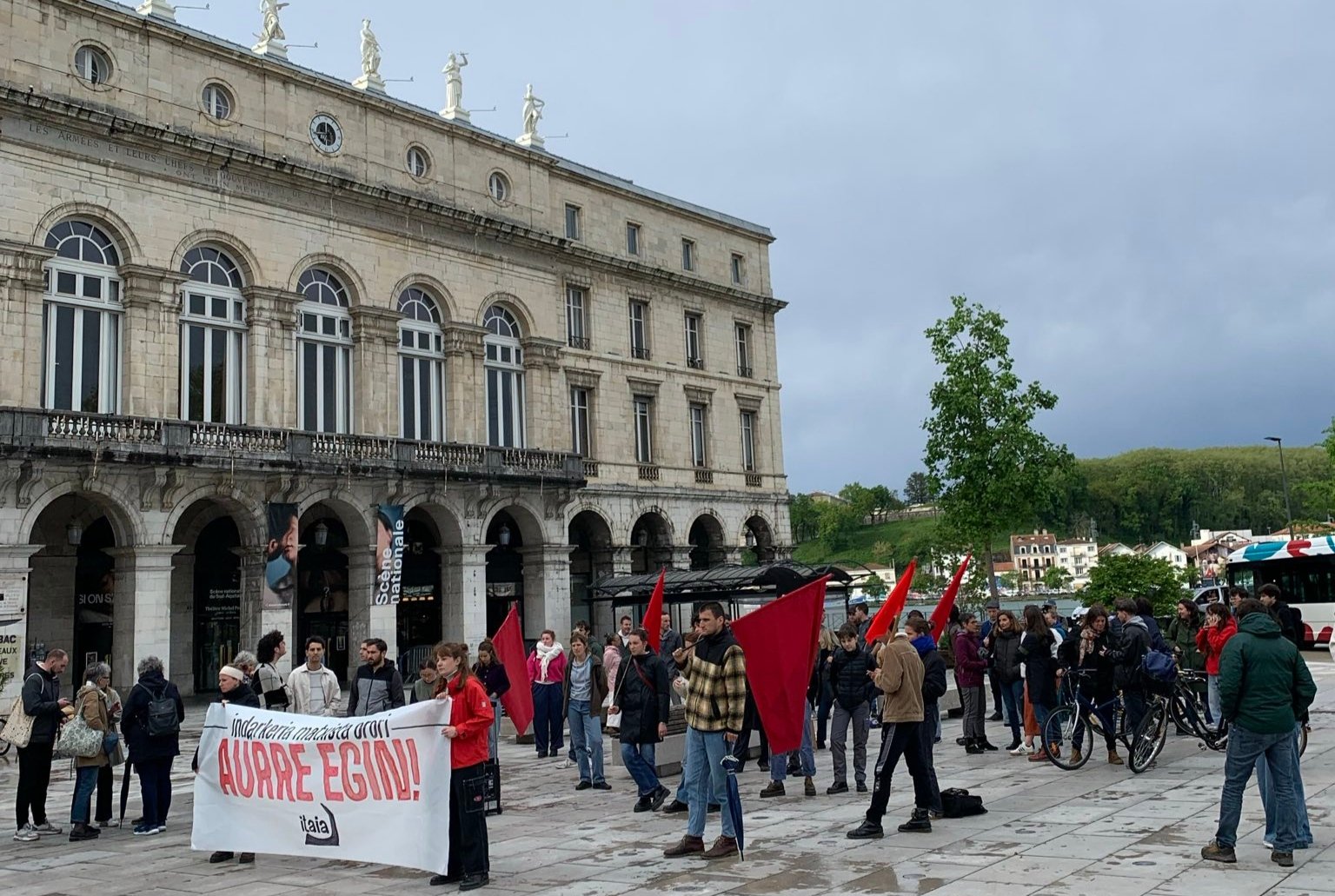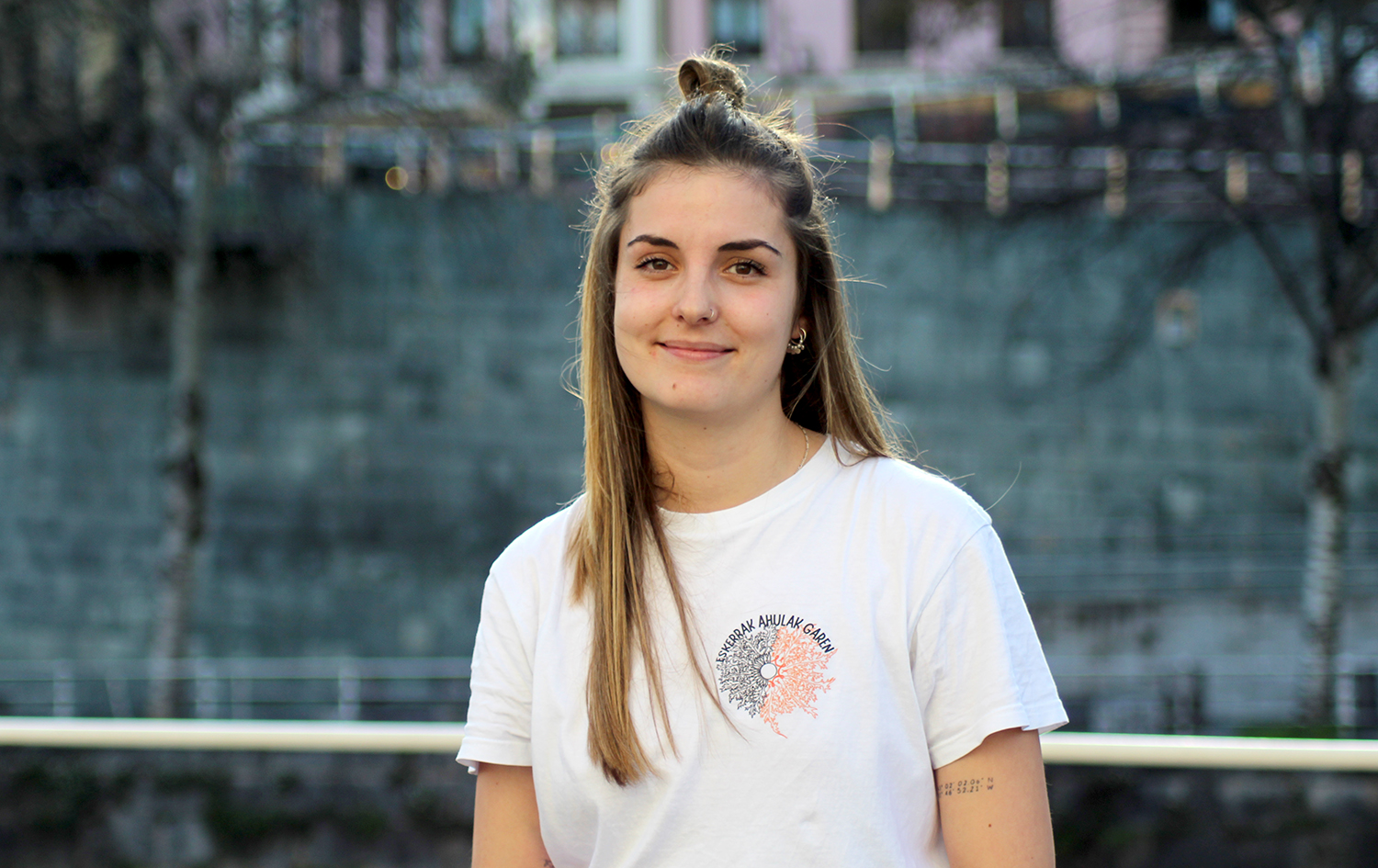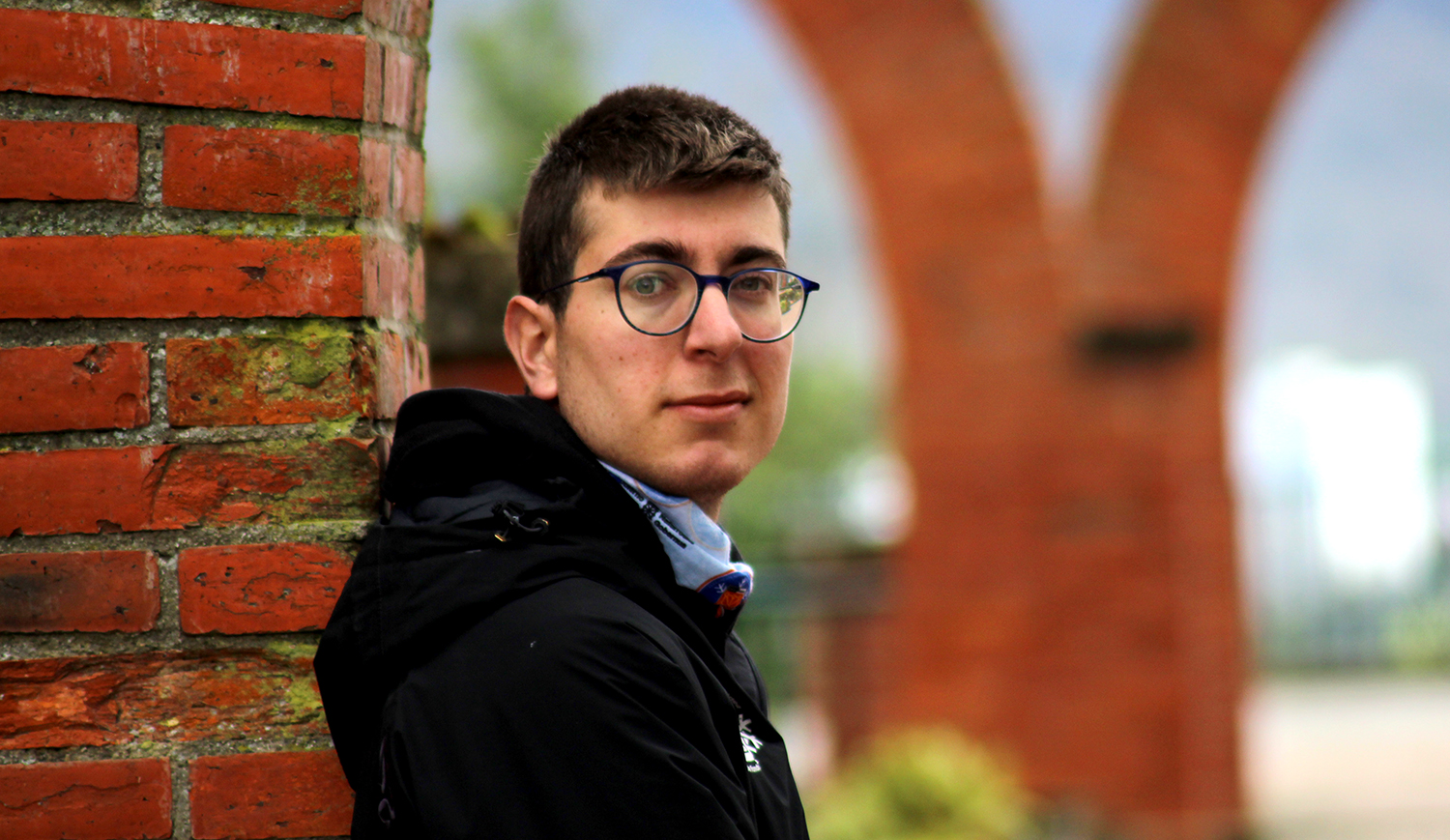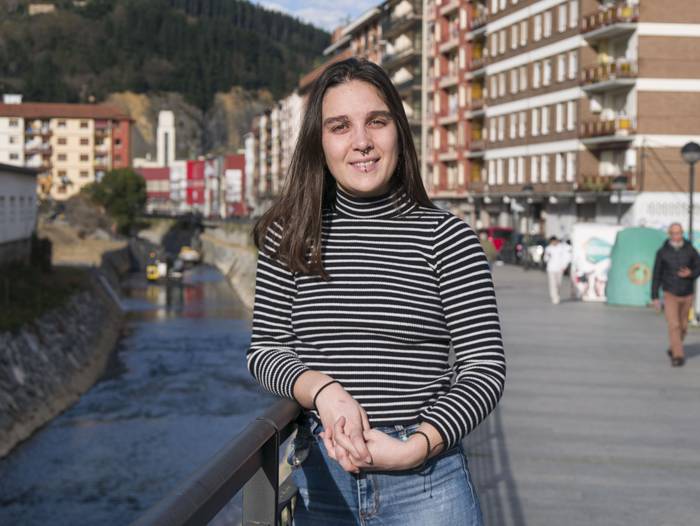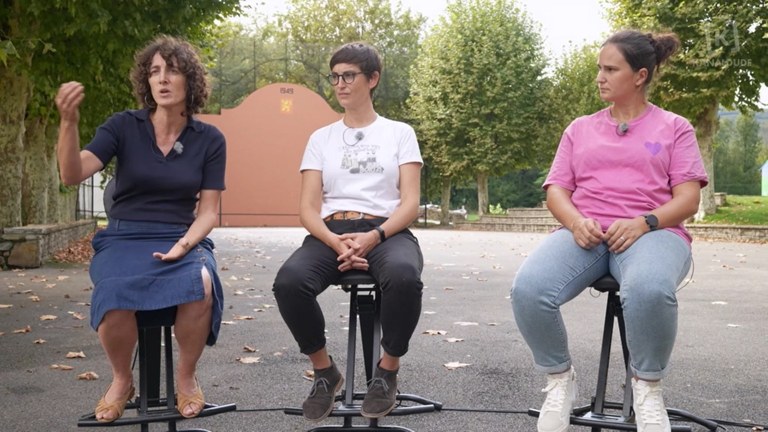The first Women's House of Ipar Euskal Herria will open its doors in Urruña
- The House of the First Women of Ipar Euskal Herria will open its doors in the coming months in Urruña. On Thursday, 27 June, the general assembly took place to establish its creation, and this has been made known by the feminist militant Véronique de la Devèze.

The first Women's House in Ipar Euskal Herria is on its way. Do you introduce it to us?
EBA is a project carried out by the coordination for Real Equality. The association is based on the law of equality of women and men of 2014 and we set it up with the creation of the Single Commonwealth of Iparralde, to carry out institutional lobbying work. The EBA has two axes of work, one to influence the community in favor of equality and the other for the creation of the Women's House.
There you have the execution of what the feminist movement had long dreamed of.
Yes, it is an old aspiration, among the feminists we have been talking about for a long time. We have joined the execution to a birth of the VIE.
How has the project been advanced?
We've been around for six years. We were inspired by the model of the Houses of Women of Hego Euskal Herria, we also looked at those of Montreuil and Saint-Brieuc. That is, we represent our Women's House as a feminist space that will function as an association. It will be a space for welcoming, supporting and supporting women who suffer violence, but in addition, we want the Women’s House to be a space for empowerment for women. Popular education, participative initiatives, formations, exhibitions, conferences… the offer will be varied. We have been able to get to know different Women's Houses throughout the work: Tolosa, Zumaia, San Sebastian, Bordeaux, Montreuil, Saint-Brieuce... In addition, we have disseminated a survey to better identify the needs and aspirations of the women of Ipar Euskal Herria. We have received 192 answers and the conclusion is clear: the need is there and there is a lot of hope about the Women's House.
Will it be in Urruña and intend to be for all Ipar Euskal Herria?
At the moment we have words. Jean-René Etchegaray was present at the presentation and told us that he would support us. We have asked him for an appointment and we are waiting for an answer.
Urruña begins the new course and guides her to the needs of the women in the area. The Single Commonwealth of Iparralde is divided into ten areas and aims at ten Women ' s Houses or at least one permanent space. In fact, they are not the same in Zuberoa, Baiona or Urruña. It has to be said that we have not put ourselves to power in Baiona, because in our reflection we have to act against that centralism of always. We would like this development and coordination work to be carried out with a working person and with an animator who worked part-time. It aims to be, above all, a project that advances towards the participation of feminist militants.
Do you have guaranteed the sources of money for progress?
At the moment we have words. Jean-René Etchegaray was in the March presentation and told us that he would support us. We have asked him for an appointment and we are waiting for an answer. We have a rounded budget, we now have to make subsidy requests at the departmental level, in Europe… There is a lot of work in the shadows.
How many militants are advancing this project?
Feminist agents and collectives have been carrying out this shadow work for some time. Today we are about fifteen collaborators at the base and there are a lot of people willing to help in the area. In the widespread survey, more than half of the respondents answered that they want to help. We have developed a protocol so that the newcomers feel as comfortable as possible in the project. Getting into a job started a long time ago is not necessarily straightforward, and one of the challenges we have is to make the initiative available to everyone. We have also created a charter for partners and participants, with the aim of ensuring that we join in values. Various working groups have been set up: general coordination, communication, programming, participation, sources of funding…
Have the elected witnesses welcomed the project?
As far as Urruña is concerned, we have had a great deal of welcome and participation. We will move to other territories, we will meet with the Houses of the People, and it will be seen… It must be said that we are in a historical moment of living a demanding and strong feminist movement, always at the same time, with the conservative front that this implies, because every emancipation movement leads to it. That quick feminist front helps us. The needs for women’s rights and equality are there, and they cannot tell us otherwise. The minds of women are also real and serious, and they will not be able to stand against it. It will be a tool for transformation, a project that transforms the agents of the territory and the territory itself.
One last word?
It is a question of making this project known, as it affects its development. Obviously, we need helpers, all women are welcome. And, I repeat, the Women's House wants to be a space for transformation and empowerment. As we move forward, our awareness and our ambition have increased, among other things, because we have gone from wanting a Women's House to wanting the Women's Houses. Besides being a space, it will be a tool. This personal room claimed by Virginia Woolf will be the Women's House: There will be spaces for all the women of Ipar Euskal Herria.
Many Basque feminists have been disappointed to learn that writer Chimamanda Ngozi Adichie has externalized pregnancy, meaning that a surrogate has fertilized her baby for money.Adichie is the author of the essay We should all be feminists, among others. They have ignored the... [+]
Indartsua, irribarretsua eta oso langilea. Helburu pila bat ditu esku artean, eta ideia bat okurritzen zaionean buru-belarri aritzen da horretan. Horiek dira Ainhoa Jungitu (Urduña, Bizkaia, 1998) deskribatzen duten zenbait ezaugarri. 2023an esklerosi anizkoitza... [+]
Gozamen aparta bezain deskribatzeko zaila dakar, norbaiten hitzak irakurri edo entzun ostean, zera pentsatzeak: “Horixe zen neu aurreko hartan azaltzen saiatu nintzena!”. Idazlea eta itzultzailea da María Reimóndez, eta galegoz aritzen da, hizkuntza... [+]
Orain arte desgaituak ez diren pertsonekin lehiatu da Uharteko Ipar Eski Taldeko Eneko Leyun eskiatzailea (Iruñea, 1998). 2024-2025 denboraldian, lehenengo aldiz parte hartu du Adimen Urritasuna duten Pertsonentzako Iraupeneko Eskiko Espainiako Txapelketan. Urrezko... [+]
Joan den urte hondarrean atera da L'affaire Ange Soleil, le dépeceur d'Aubervilliers (Ange Soleil afera, Aubervilliers-ko puskatzailea) eleberria, Christelle Lozère-k idatzia. Lozère da artearen historiako irakasle bakarra Antilletako... [+]
Endometriosiaren Nazioarteko Eguna izan zen, martxoak 14a. AINTZANE CUADRA MARIGORTAri (Amurrio, 1995) gaixotasun hori diagnostikatu zioten urtarrilean, lehen sintomak duela lau urte nabaritzen hasi zen arren. Gaitz horri ikusgarritasuna ematearen beharraz mintzatu da.
Duela aste batzuk, gurean egon ziren El Salvadorko eta Kanarietako emakumeen eskubideen aldeko hainbat aktibista. Sexu- eta ugalketa-eskubideez eta eskubide horiek urratzeak emakumeengan dituen ondorioez aritu gara; hala nola El Salvadorren berezko abortuak izanda homizidio... [+]
Zuberoako ohiturei buruzko bi liburu ditut gogoan. Batek XX. mendean aritu izan diren 180 dantzari eta soinulari aipatzen ditu. Haien artean, emakumezkorik ez da agertzen. Besteak, pastoralei egiten die errepasoa eta hor emakumeak aipatu aipatzen dira, baina omisio esanguratsuak... [+]
1984an ‘Bizitza Nola Badoan’ lehen poema liburua (Maiatz) argitaratu zuenetik hainbat poema-liburu, narrazio eta eleberri argitaratu ditu Itxaro Borda idazleak. 2024an argitaratu zuen azken lana, ‘Itzalen tektonika’ (SUSA), eta egunero zutabea idazten du... [+]











